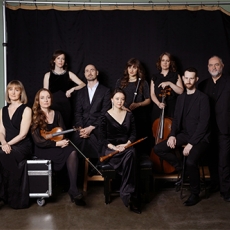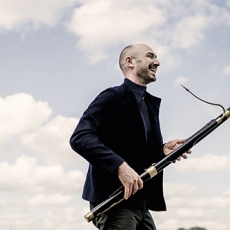IBO & Peter Whelan - The Trials of Tenducci - Early Music Review
The soprano castrato Giusto Ferdinando Tenducci, born in Siena around 1735, led a life that was colourful even by the standards of his profession. Jailed for debt on more than one occasion, he held a magnetic appeal to women, an attraction that led to a notorious scandal when he married a young pupil in Dublin. After spending the earlier part of his career singing minor roles in such European centres as Milan, Naples, Venice and Dresden, Tenducci arrived in London in 1758. There, following his first spell in a debtors’ prison, he created the role of Arbaces in Thomas Arne’s English opera seria Artaxerses in 1762, a success he later repeated in both Dublin and Edinburgh. Particularly well regarded in lyrical music, Tenducci spent his later years in London, Dublin and Italy, where he died in Genoa in 1790.
As the title suggests, this pleasing CD sets out to give a musical snapshot of Tenducci’s connections with Dublin, even if somewhat tenuously at times – Mozart’s Exultate, jubilate seems to have gained admission solely by dint of the fact that he wrote a now-lost scena for Tenducci when in 1778 the latter met Mozart in Paris in the company of their mutual friend, J. C. Bach. It is given a very capable performance by mezzo Tara Erraught, whose attractive tone and warmth are heard to particular advantage in the second aria (‘Tu virginum’), where we even get a cadential trill, though the continuous vibrato may be more to the taste of general listeners than early music enthusiasts. But she copes well with the coloratura of the first aria and ‘Alleluia’ and as throughout the programme is accompanied neatly, if in quicker music rather clipped fashion, by the IBO.
A more direct connection with Dublin can be found in the brief and agreeable if not especially distinctive three-movement Symphony in G by the Belgian Pierre van Maldere, a leading figure in the Fishamble Street concert series between 1751 and 1753. The inclusion of extracts from Artaxerses, which ran for a record 33 performances in Dublin, was obviously a given, as were the two arias of Arbaces chosen, the bravura ‘Amid a thousand racking woes’, which Erraught doesn’t always have fully under control in the upper register, and the show’s hit number, ‘Water parted from the sea’, sensitively done, if not entirely without diction problems.
Tommaso Giordani was another Italian to spend considerable time in Dublin, having been part of a touring opera family that first visited in 1764 and then again in the 1780s, when he founded an opera company that went bankrupt. Two of Giordani’s songs that were particularly associated with Tenducci are included, along with his three-movement overture to the pantomime The Island of Saints (1785). The final movement is a rumbustious medley of traditional Irish jigs and reels, here despatched with great aplomb by the IBO. Another popular Irish melody, ‘Gramachree Molly’ forms the theme for the set of variations that concludes J. C. Fischer’s Oboe Concerto No 7 in F, here very well played by Andreas Helm. Another opera premiered by Tenducci, Mortellari’s Arsace (Padua, 1775) includes a scena consisting of a strongly declamatory accompagnato and aria later adapted for and dedicated to Tenducci by his friend J. C. Bach. It is capably sung by Erraught, though director Peter Whelan’s flowery fortepiano continuo arpeggiations in the recitative are to my mind not in the best taste.
All in all, the CD is an interesting, well-performed showcase of music in and around Tenducci’s Dublin.



